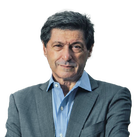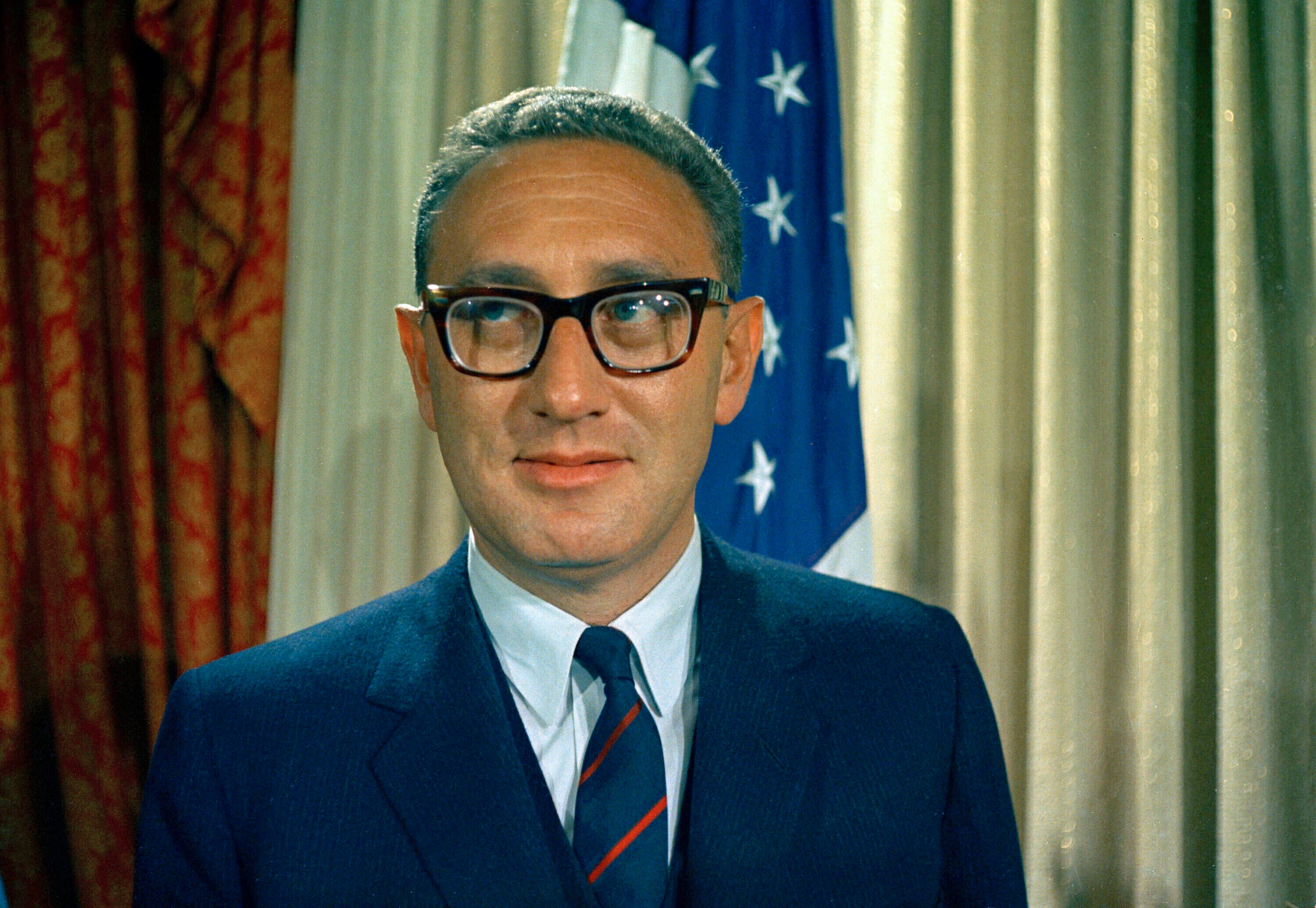The Henry Kissinger I knew was a dazzling intellect right until the end
Dr Kissinger leaves behind a complex legacy but he was never tortured by his past – he was too busy thinking about the future, writes Jon Sopel. The former secretary of state – warts and all – was an icon of the twentieth century and we have lost a deep reservoir of knowledge


“Jon, just a heads up. Henry may not be able to make Paris next week, so we might have to change things around a bit for you”. That was the call I got a month ago. I couldn’t believe it. Henry Kissinger not there? Unthinkable. But why was I in any way surprised? He was 100 years old after all, and wasn’t going to go on for ever.
There is a discreet, private conference that I have been involved with for the past dozen or so years. The cast list attending is invariably sparkling. The CEOs of the world’s biggest companies, the innovators who are going to shape the next century, and Henry – who was the walking, talking encyclopaedia of the last umpteen decades.
I mean, when he was born in 1923 the ink was still drying on the Treaty of Versailles (well more or less); he was born into Weimar Germany – the Bavarian accent was one he would never lose. He fled the Nazis and ended up in America. An academic who rose to high office – the very embodiment of the American dream. And as America’s top diplomat to Nixon and Gerald Ford, and advisor to ten other presidents (a little over a quarter of the total in the history of the country) when he spoke, you listened.
At the Paris conference, I was due to chair a geopolitical panel with a former British PM, a one-time CIA director and, like Kissinger, a former US secretary of state. We were going to do the state of the world, obviously with a strong focus on the current situation in Gaza. But Henry was to do the session on previous conflicts. Of course he was. He had been part of the shuttle diplomacy that brought the Yom Kippur war to an end. He was friends with the then Israeli prime minister Golda Meir, he broke bread with Anwar Sadat of Egypt and was on friendly terms with King Hussain of Jordan. I was sorry not to hear his take on how this latest perilous flare up might resolve itself. A fall at his home in Connecticut a day earlier meant he was unable to travel.
The previous year I had been with him at the same conference in Tokyo. This time the conversation was about China and US relations – and the threat to Taiwan. Then a mere 99 years old, his mobility was limited, and his voice had – improbably – become even deeper (it was always at the basso profundo end of the scale), and delivery more languid. But his brain was razor sharp. He talked about meeting Chairman Mao and the role he’d played in normalising relations with China in 1972. How the Chinese view of history and destiny was different from the West’s, and that was often not appreciated. Their time horizon was not dictated by the distraction of election cycles, like ours was.
Perhaps most noticeable when his death was announced was not the leaders from around the world who paid tribute to him – but an organisation: the Chinese state news agency mourned the passing of “a valued old friend”. He had the ear of President Xi, visiting China over a hundred times.
The Kissinger legacy is complex. A cold war hawk, he – arguably – laid the seeds for the destruction of the Soviet Union with his tough stance against communism. “Peace through strength” was the phrase coined by Reagan in 1980, but this was Kissinger’s realpolitik in action. Yet he sought friendship with communist China. He prodded the Soviet bear, but welcomed the Chinese pandas: Ling-Ling and Hsing-Hsing to be precise. Their arrival at Washington zoo in 1972 thrilled Americans, and brought the predictable headline – “panda-monium”.
And yet and yet. His record in Cambodia with the carpet bombing of towns where it was thought Vietcong fighters were taking refuge from the Vietnam War, the premature Nobel Peace Prize for bringing peace to Vietnam when war was still raging, the overthrow of the elected government in Chile of Salvador Allende (he justified that by saying: “I don’t see why we need to stand by and watch a country go communist due to the irresponsibility of its people”), the less-than-overwhelming respect for human rights, his closeness to Nixon – all will be argued over for years to come.
He once said, “while we should never give up our principles, we must also realise that we cannot maintain our principles unless we survive”. It is a good summation of his outlook. Idealism only takes you so far. And on these stages that I have shared with him over the past decade, there is a strong touch of the Frank Sinatra sentiment in “My Way”:
“Regrets, I’ve had a few,
but then again
too few to mention”.
He was not tortured by his past; he was entirely at ease with it. Instead, he was generous at sharing his “back catalogue” with policymakers and leaders today. And it was clear the extent to which his counsel was still being sought by world leaders right up until the end. Also, it should be added, not just on what has happened in the past and how it might guide the future – but he immersed himself in current issues. Listening to him talk about the challenges and opportunities of AI was dazzling. Bewildering and humbling really.
And my observation is he still relished the attention. I was at a dinner where he was guest of honour. It was in a fabulous art gallery, and at the end many in the audience queued to get selfies with him. He seemed to love every second of it. He once said that power was the ultimate aphrodisiac, but he seemed to get high on life.
There’s a very famous doctor and medical ethicist in the US called Zeke Emanuel (his brother, Rahm, was Barack Obama’s chief of staff). He stirred an absolute hornets nest when he announced that he would stop seeking medical treatment when he was 75, and argued that so should everyone else. Quality of life was too poor; you became a burden on everyone else. 75 was a good time to call it quits.
The former secretary of state and national security advisor was the resounding answer to that argument. In organisations and corporations, they talk about the “institutional memory” of a place’s history. Dr Henry Kissinger – warts and all – was the institutional memory of the twentieth century – and to lose that deep reservoir of knowledge is a great loss indeed.
Jon Sopel is the former BBC North America Editor and now presents Global’s ‘The News Agents’ podcast






Join our commenting forum
Join thought-provoking conversations, follow other Independent readers and see their replies
Comments